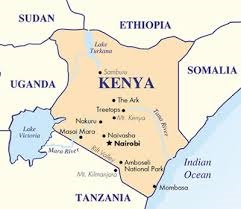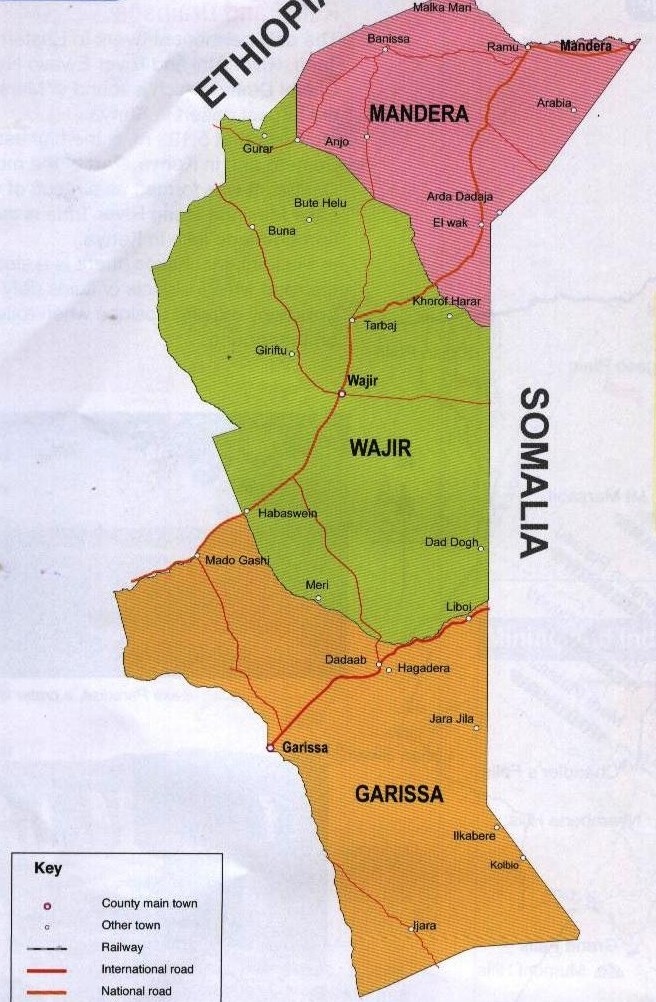After almost a weeklong tedious general election that was the first of its kind in Kenya’s modern election history, Kenyans felt the horrors of political obscurantism, the dissipation of national cohesion, and the callousness of their leadership mainly because of the overwhelming disputes and petitions that inundated the nation’s adjudication courts. Constituencies that have been embroiled in court litigations related to election irregularities have been enormously mindboggling for a nation that just subscribed to democratic governance after decades of misrule and authoritarianism. Petitions citing theft or destruction of ballots, concealment of voter registration papers, and obstruction and barring of voters have been out of the ordinary beginning with the presidential slot to that of senators, governors, Members of Parliament, and women and youth representatives.
 Even after the chairman of the Independent Electoral and Border Commission (IEBC), Ahmed Issaack declared Uhuru Muigai Kenyatta to be Kenya’s fourth president, the powerful Coalition for Reform and Democracy (CORD) headed by Raila Amolo Odinga, filed a petition citing fraud and other forms of election irregularities. In a communiqué to the media, Raila claimed that he was not fighting to be declared president out rightly through malevolent designs. Instead, he claimed to be seeking the restoration of the faith of Kenyans in the electoral process through constitutional dispensation.
Even after the chairman of the Independent Electoral and Border Commission (IEBC), Ahmed Issaack declared Uhuru Muigai Kenyatta to be Kenya’s fourth president, the powerful Coalition for Reform and Democracy (CORD) headed by Raila Amolo Odinga, filed a petition citing fraud and other forms of election irregularities. In a communiqué to the media, Raila claimed that he was not fighting to be declared president out rightly through malevolent designs. Instead, he claimed to be seeking the restoration of the faith of Kenyans in the electoral process through constitutional dispensation.
Regardless of the election irregularities, Kenyans, instead of taking the law into their own hands as in the 2007 election when violence engulfed a good productive part of the nation, this time around, they took to using media ballistics. The nation’s twitterati and Facebookati seemed to be enjoying freedom of press and of expression, at least, by taking to the internet to hurl expletives at each other and voice their deepest concerns. The recent presidential election has been an election that made nations in the Eastern Bloc laugh out loud while those in the Western rim seemed to have had grievances as they felt
dumbfounded and bewildered after Raila Odinga, the man they had in mind, failed to garner the presidential slot.
Currently, there are little signs of spears and arrows getting poisonous concoctions at the tips; manufacture of simis and machetes has not been documented; and mallets and pangas seem to be out of the picture. Perhaps, Kenyans are on the road to democratic maturity and that is why bloodshed is out of context. Columnist Macharia Gaitho of the Daily Nation was wonderstruck by the level of narrow-mindedness and revulsion in the media and thus pressed Kenyans to mend their spiteful designs in the following exhorting words: “The level of malevolent hate, ethnic bigotry, incendiary words and totally criminal incitement would put to shame the infamous hate media outlets of the Rwanda Genocide, the newspaper, Kangura, and Radio Télévision Libre Mille-Collines”.
There has been long running political antagonism between the Luo of Raila Odinga and the Kikuyu of Uhuru Kenyatta beginning with Kenya’s independence in 1963. Looking at how the two tribes vote and interact, one is made to believe that they are like two political parties having opposing political views reminiscent of the Republican and Democratic parties of the US. A riddle in Kenya’s elections is that leaders never accept defeat.
Currently, regardless of the anger visible on the faces of many, there is an aura of peace everywhere and less coverage regarding the whereabouts of Omieri, the dreaded poisonous serpent that shows its head once or twice a year on the banks of Lake Victoria where the Luo ethnic group dominate. Among the Kikuyu, the sudden fall of the Mugumo wild fig tree after a three-hundred year hiatus is a sign that the ancestors have spoken and that a new generation of youthful leaders such as Uhuru Muigai Kenyatta and his running mate William Samoei Ruto are poised to lead the nation to peace and prosperity.
Kenya is a land of traditional beliefs where bogus palmists and strange astrologers, witchdoctors and magicians, charlatans and petty thieves have a field day whenever there is an election. Those who seek the services of these unscientific and irreligious practices and rituals come from the political fraternity. It is no wonder condiments used to prognosticate election outcomes include nail clippings, ear wax and chicken bones, just to mention a few.
During the reign of Mzee Jomo Kenyatta, majority of government offices and mammoth businesses were operated by Kikuyu men and women such that offices displayed Kikuyu vernacular signs like hatiri njira haha which translated to ‘no way through’. On the same length, the reign of Raila as Prime Minister was no different as Miguna Miguna, a former barrister and solicitor who served as senior advisor to Raila, in one of his books, decried the corruption and nepotism that were common in the premier’s office. Also, Moi and Kibaki have been part of the corruption conglomerate that gripped the country on a larger scale with official appointments given to entities hailing from the Kalenjin and Kukuyu ethnic groups respectively.
Unlike in the past when courts were defined as irrelevant, corrupt, authoritarian machinery, and tribally inclined, nowadays, Kenyans seem to concur with the new judicial structures in place. According to OpEd appearing in the Sunday Nation and written by AhmedNasir Abdullahi, “Kenyans have shown huge confidence in the new judiciary and their pregnant expectations of justice must be safely delivered by the judiciary.” Confidence in the judiciary implies that the law will have to be applied equally without favoring one entity over another.
To put it briefly, there has been less violence by the public and less police brutality in the run up to the elections. The nation’s media worked round the clock keeping the ordinary citizen and the international community informed of the general electioneering activities. The hard work and dedication of Kenya media has been applauded globally such that it has been labeled ‘the best media in Africa’.
Kamukunji Constituency and the Eastleigh Political Jostling
In Eastleigh, a suburb of Nairobi predominantly populated by a large Somali community, the electorate converged onto polling stations in droves to cast their votes. The most towering figure in Kamukunji politics was Yusuf Hassan Abdi (ina Indhagamuun), a soft-spoken man who has been in Kenya politics for a short period. The former UN and BBC employee retained his seat in the just concluded general election. Speaking to his constituents after winning the election, Yusuf pledged to instigate development projects in his constituency.
Northern Kenya
In northern Kenya, especially in the former North Eastern Province that was known as the Northern Frontier District (NFD) during colonial times, voters aligned themselves with their tribesmen. In counties such as Garissa, Wajir, and Mandera, several old guards who dominated politics for decades have been shown the door after electors decided to replace them with a new breed of youthful politicians.
 As the new constitution of the land stipulates, women and the youth have the right to elect political representatives of their choice. In Garissa, the new county women representative is Shukran Gure, a politically mature and well educated lady who has vast experience in human management and in the healthcare industry. Her new position, the first of its kind, could set the stage for aggressive human development if well implemented.
As the new constitution of the land stipulates, women and the youth have the right to elect political representatives of their choice. In Garissa, the new county women representative is Shukran Gure, a politically mature and well educated lady who has vast experience in human management and in the healthcare industry. Her new position, the first of its kind, could set the stage for aggressive human development if well implemented.
Similarly, in Garissa County, the senate race was contested by Mohamed Yusuf Haji, the former Minister for Defense and Farah Maalim Dawara, the former Deputy Speaker of Kenya Parliament. Mr. Haji won by a big margin after the race was over.
In the parliamentary contest, former Assistant Minister Aden Barre Duale emerged victorious after defeating his opponents in Garissa Township Constituency. Since Mr. Duale is in the same Jubilee Political Party as the president-elect, there is a greater chance that he could be placed in a bigger role. Mr. Duale is an outspoken politician who has been vocal in the fight for democracy.
In Fafi Constituency also in Garissa County, Ilyaas Barre Shiil defeated former MP Major Aden Sugow by a big margin. Major Aden Sugow is a former military intelligence officer and son of a former paramount chief. Mr. Ilyaas Barre worked for the Ministry of Education for many years before plunging into politics to serve a five-year term.
In Mandera, Bilow Kerow who was once an MP has come back to the political scene, this time as a senator. Senator Bilow represented the URP Party that is an ally of Jubilee Party. In Wajir, Abdirahman Olow defeated his opponents Mohamed Abdi Affey of Kilonzo Musyoka’s Wiper Party and Enow of Uhuru’s TNA Party to become senator. The women representative for Mandera is Fathiya Mahbub who was representing the URP Party of Uhuru running-mate William Samoei Ruto. The newly-elected women representative for Wajir County is Fatuma Ibrahim Ali who ran on an ODM ticket.
The candidate who won the position of Garissa County Governor is Nathif Jama Adan, a professional banker with vast experience in the region. After attending Garissa Secondary School (GSS), Nathif went on to become a radio/TV presenter in Kenya before moving to the tiny nation of Qatar in the Middle East where he was based for many years before coming back to serve his nation by establishing the first interest-free Islamic bank. Running under the Wiper Party Ticket, Nathif defeated opponents Mohamed Moulid Shurie of UDF, Ali Bunow Korane of TNA, and Harun Mohamed Yusuf of ODM.
Now that the Supreme Court of Kenya has delivered its verdict on the petition filed by Raila Odinga and that Uhuru is to be sworn in as the next president, there has to be working relationship between the two powerful political parties, Jubilee and CORD. Taking the country out of the current morass requires dedicated, willing, and talented leaders whose policy will be to elevate people’s living standards and bring about rigid social change. Kenya is the power house of East Africa and there is the need to place it at elevated heights. The economy of the people in the northern regions will have to be boosted and their education uplifted. In a nutshell, Kenya needs to move forward from the current standstill that is holding back economic enrichment.
WardheerNews Editorial
Email: [email protected]
We welcome the submission of all articles for possible publication on WardheerNews.com. WardheerNews will only consider articles sent exclusively. Please email your article today . Opinions expressed in this article are those of the author and do not necessarily reflect the views of WardheerNews.
WardheerNew’s tolerance platform is engaging with diversity of opinion, political ideology and self-expression. Tolerance is a necessary ingredient for creativity and civility.Tolerance fuels tenacity and audacity.
WardheerNews waxay tixgelin gaara siinaysaa maqaaladaha sida gaarka ah loogu soo diro ee aan lagu daabicin goobo kale. Maqaalkani wuxuu ka turjumayaa aragtida Qoraaga loomana fasiran karo tan WardheerNews.
Copyright © 2024 WardheerNews, All rights reserved


